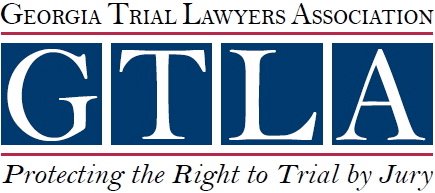In Georgia, dog bite cases often extend beyond the immediate physical injuries sustained during the attack. While the immediate concern for many victims is addressing the medical bills that arise from treatment, it is essential to recognize that the financial implications and emotional trauma of a dog bite can be far-reaching and long-lasting. Victims of dog bites may be entitled to recover damages beyond just the cost of their medical care. These additional damages can include compensation for pain and suffering, emotional distress, lost wages, and even punitive damages in certain circumstances. Understanding these potential avenues of compensation is crucial for ensuring that victims receive the full extent of the financial recovery they are entitled to under Georgia law.




Understanding the Scope of Damages in Dog Bite Cases
When considering a dog bite case, many people initially think of the immediate costs, such as emergency room visits, surgery, or ongoing medical treatments. However, the impact of a dog bite often goes far beyond these initial expenses. Victims may suffer from long-term physical impairments, psychological trauma, and significant disruptions to their daily lives. For instance, a person who is bitten on the hand may experience permanent nerve damage, affecting their ability to work, particularly if their job requires manual dexterity. Similarly, the emotional scars left by a traumatic dog attack can lead to conditions such as post-traumatic stress disorder (PTSD), anxiety, and depression, all of which may require long-term therapy and medication.
In Georgia, the law recognizes the broad range of impacts that a dog bite can have on a victim’s life. As a result, the state allows for the recovery of several types of damages, each designed to address different aspects of the harm suffered. These damages can be divided into economic and non-economic categories. Economic damages are intended to compensate for quantifiable financial losses, such as medical bills and lost wages. Non-economic damages, on the other hand, cover more subjective experiences like pain and suffering or loss of enjoyment of life. Both types of damages are crucial in providing a comprehensive remedy for the harm caused by a dog bite.
Economic Damages Beyond Medical Bills
While medical bills are often the most immediate and tangible cost associated with a dog bite, they are far from the only economic damages a victim might incur. Lost wages are a significant concern for many dog bite victims, especially those whose injuries prevent them from working for an extended period. Even if the victim is able to return to work, they may not be able to perform their job duties at the same level, leading to a reduction in earning capacity. This loss of income can be a substantial burden, particularly if the victim is the primary breadwinner for their family.
In addition to lost wages, victims may also face expenses related to ongoing rehabilitation or physical therapy. These costs can add up quickly, particularly if the victim requires care or adaptive devices to help them regain their mobility or function. In some cases, home modifications may be necessary to accommodate a victim’s new physical limitations, such as installing ramps or widening doorways for wheelchair access. These costs can be significant, and it is important that they are considered when calculating the full extent of a victim’s economic damages.
Another aspect of economic damages that is often overlooked is the cost of future medical care. In severe dog bite cases, victims may require additional surgeries, ongoing therapy, or long-term medication. Estimating these future costs can be challenging, but it is essential for ensuring that the victim is fully compensated for all of the expenses they are likely to incur as a result of the attack. An experienced attorney can help victims gather the necessary medical evidence and testimony to accurately project these future costs and include them in the demand for compensation.
Non-Economic Damages
Non-economic damages in Georgia dog bite cases are intended to compensate victims for the more intangible harms they suffer, such as pain and suffering, emotional distress, and loss of enjoyment of life. These damages are inherently more subjective than economic damages, as they deal with the personal and emotional impact of the injury rather than quantifiable financial losses. However, they are no less important in providing a full and fair recovery for victims.
Pain and suffering refer to the physical and emotional discomfort that a victim experiences as a result of their injuries. This can include the actual physical pain caused by the bite itself, as well as the ongoing discomfort from surgeries, physical therapy, or other treatments. Additionally, pain and suffering can encompass the emotional anguish that a victim may endure, such as fear, anxiety, and depression. For many dog bite victims, the psychological impact of the attack can be just as debilitating as the physical injuries. They may experience nightmares, flashbacks, or an intense fear of dogs that limits their ability to go about their daily lives. In severe cases, victims may develop PTSD, which can require extensive therapy and medication to manage.
Another form of non-economic damage is the loss of enjoyment of life. This refers to the ways in which a victim’s quality of life has been diminished as a result of their injuries. For example, if a victim was an avid runner before the attack but can no longer participate in that activity due to their injuries, they may be entitled to compensation for the loss of that enjoyment. Similarly, if the victim’s injuries prevent them from participating in social activities or spending time with their loved ones, this loss can be considered when calculating damages.
Punitive Damages in Dog Bite Cases
In some cases, dog bite victims in Georgia may also be entitled to punitive damages. Unlike compensatory damages, which are intended to make the victim whole, punitive damages are designed to punish the defendant for particularly egregious behavior and to deter others from engaging in similar conduct. Punitive damages are not available in every dog bite case; they are typically reserved for situations where the defendant’s actions were especially reckless or malicious.
For example, if a dog owner knew that their dog had a history of aggressive behavior and failed to take reasonable steps to prevent the attack, a court might award punitive damages to the victim. Similarly, if the owner intentionally provoked the dog to attack or failed to comply with local leash laws or other regulations designed to protect the public, punitive damages might be appropriate. The amount of punitive damages awarded can vary widely, depending on the severity of the defendant’s misconduct and the harm suffered by the victim.
Punitive damages serve an important role in the legal system by holding defendants accountable for their actions and sending a strong message that such behavior will not be tolerated. For victims, punitive damages can provide a sense of justice and closure, knowing that the defendant has been punished for their wrongdoing.
Hiring a Personal Injury Attorney How Long Will a Personal Injury Case Take?Related Videos
The Role of Legal Representation in Recovering Damages
Navigating the complexities of a dog bite case can be challenging, particularly when it comes to determining the full extent of the damages a victim is entitled to recover. This is where the role of skilled legal representation becomes crucial. An attorney with experience in handling dog bite cases in Georgia can help victims understand their rights, gather the necessary evidence, and build a strong case for compensation.
One of the key roles of an attorney is to ensure that all potential damages are considered and included in the demand for compensation. This includes not only medical bills but also lost wages, future medical expenses, pain and suffering, emotional distress, and punitive damages where applicable. An attorney can work with medical professionals, economic specialists, and other specialists to accurately assess the full impact of the injuries and ensure that the victim is fully compensated for all of the harm they have suffered.
Representative Cases
Another important aspect of legal representation is negotiating with the insurance companies involved. Insurance companies often try to minimize the amount they pay out in claims, and they may attempt to settle a dog bite case for less than it is worth. An attorney can advocate on behalf of the victim, negotiating with the insurance company to secure a fair settlement that reflects the true value of the claim. If a fair settlement cannot be reached, the attorney can take the case to court and fight for the compensation the victim deserves.
If you or a loved one has been the victim of a dog bite in Georgia, it is important to seek legal representation as soon as possible to protect your rights and ensure that you receive the full compensation you are entitled to. At Princenthal, May & Wilson, LLC, our experienced attorneys understand the complexities of dog bite cases and are dedicated to helping victims recover damages beyond just their medical bills. We will work tirelessly to build a strong case on your behalf, negotiate with insurance companies, and, if necessary, take your case to court to achieve the best possible outcome. Contact us today to schedule a consultation and learn more about how we can assist you in your recovery journey.





